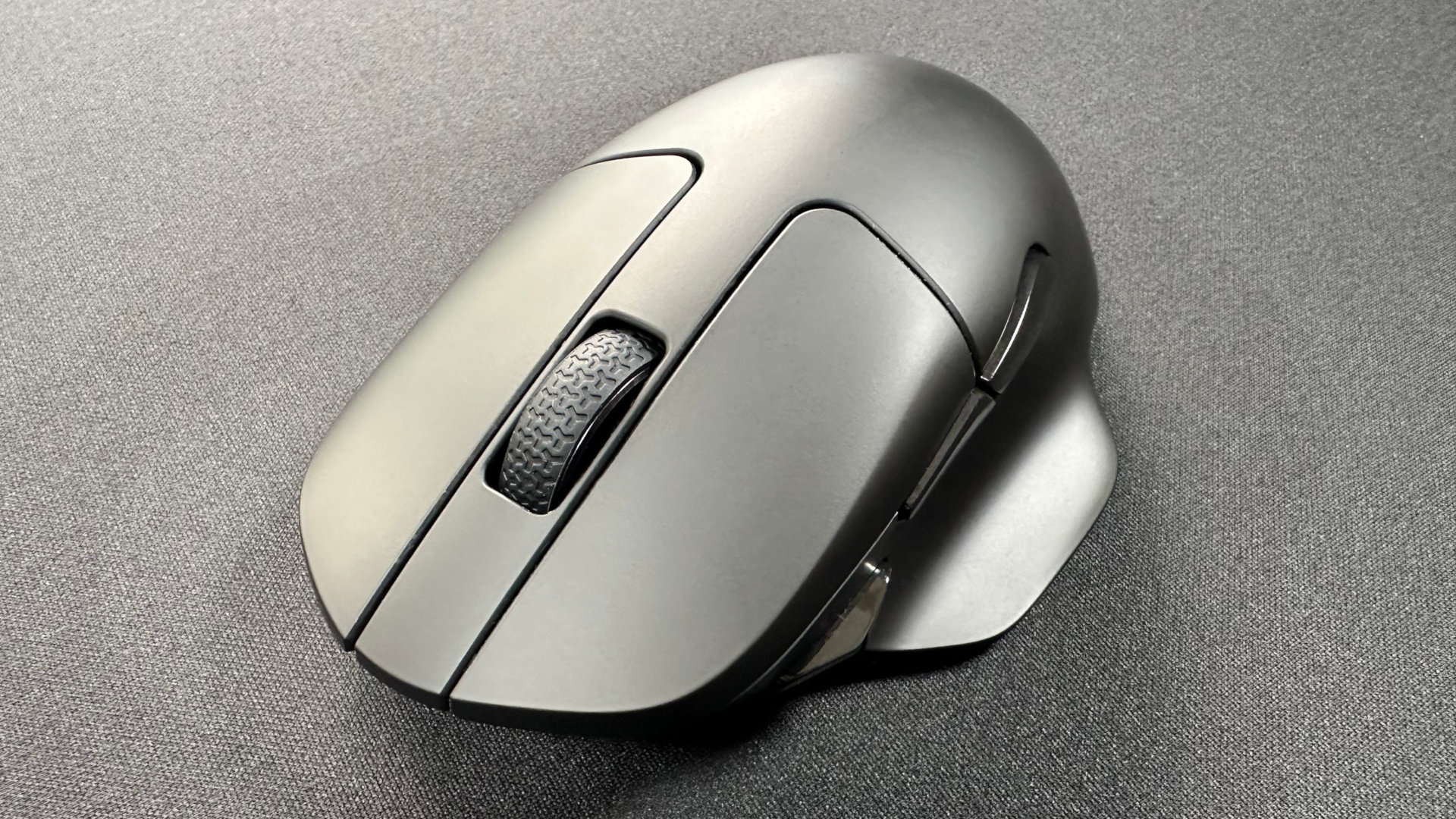Bethesda on Fallout 76 mods, selling non-cosmetic items, and community feedback
I chat with Bethesda's Jeff Gardiner and Chris Mayer about Fallout 76 six months after its launch, and how it's changed since then.
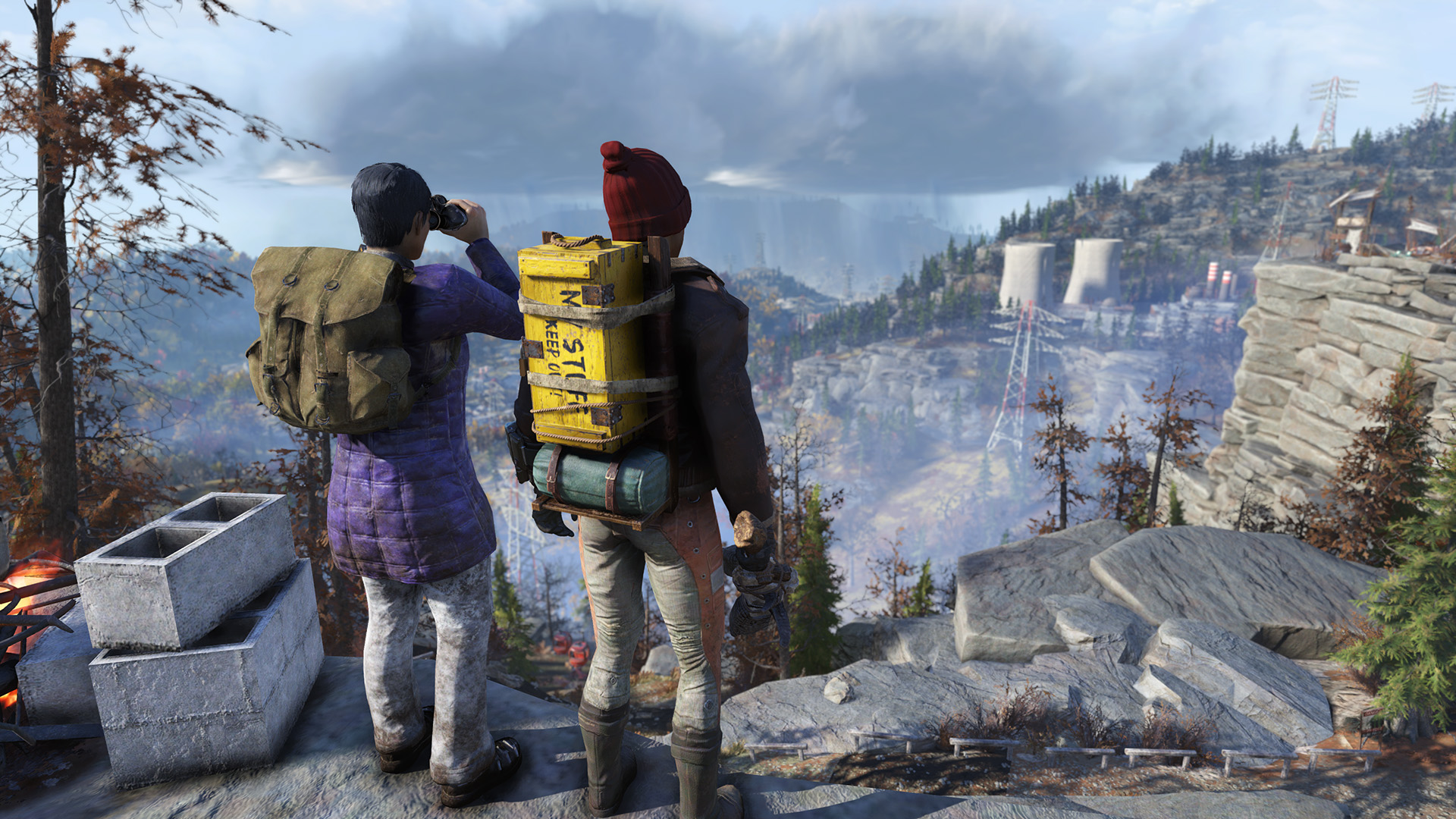
When Fallout 76 launched in November of 2018, one of the main topics of conversation—besides those damn bags, I mean—was stash sizes. Players felt their stash boxes, which at launch only held 400 pounds worth of items, were far too small in a game that lent itself to a pack-rat mentality. Explore, fight, collect, craft, dump everything else in the stash box, repeat.
A lot has changed since Fallout 76's release six months ago—in addition to new quests and features and a separate survival mode added by the hefty Wild Appalachia update, there have been tons of other changes, fixes, and tweaks on a near-weekly basis (stash size, for example, has been increased not once but twice). The six month mark felt like a good time to talk to Bethesda about those changes to Fallout 76, many of which were based on community feedback.
In this chat with Bethesda project lead Jeff Gardiner and development director Chris Mayer, we talk about community feedback that has led to changes in the game, and how community-made mods are still influencing the direction of Fallout 76—even though they're not officially supported (yet). We also talk about the possibility of a Creation Club for Fallout 76, the game's most recent controversy (repair kits for sale in the Atomic Shop, which some say are pay-to-win microtransactions), Fallout 76 heading to Steam, and more.
Feedback loop
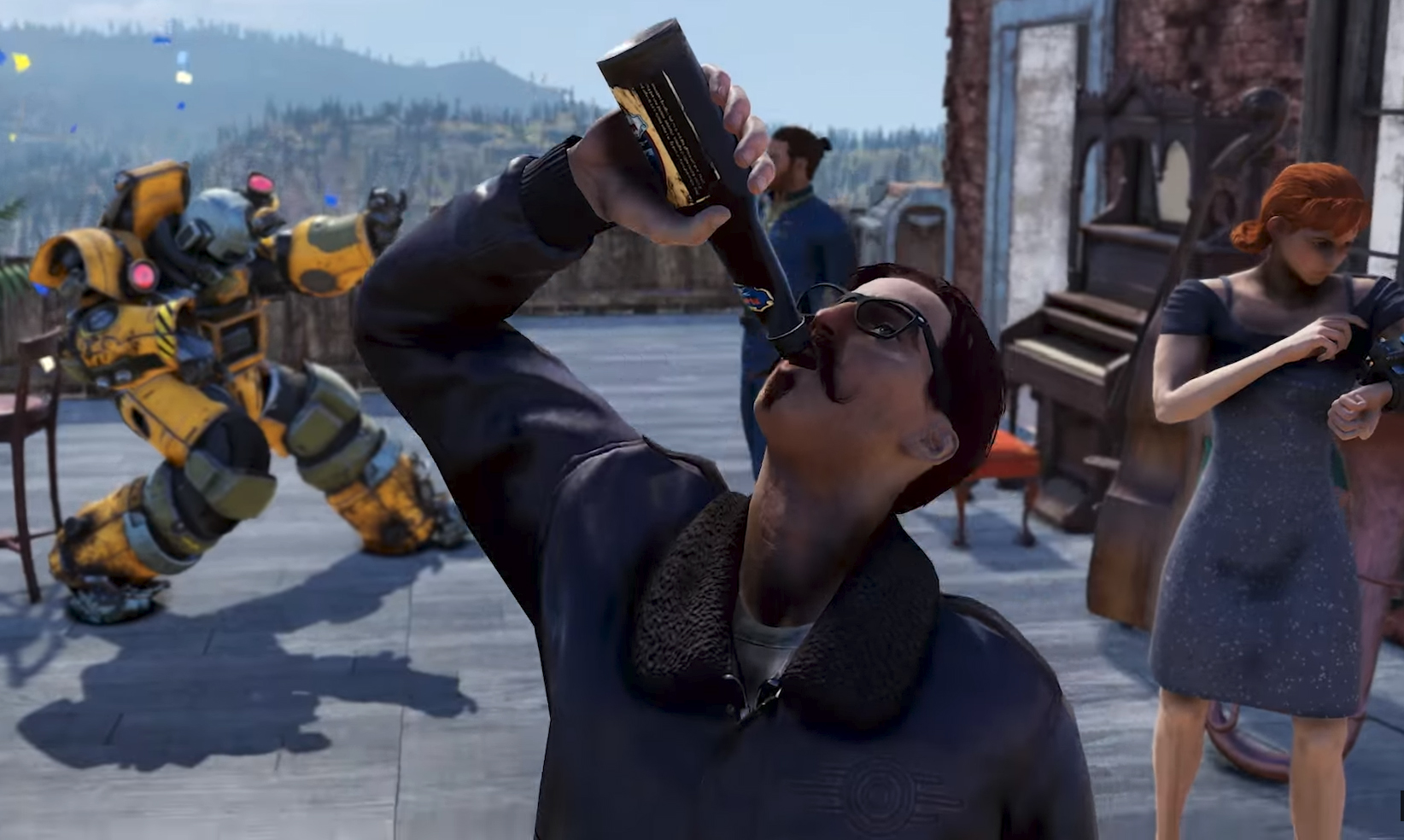
We actually begin by talking about those pesky stash boxes, because I'm curious about changes based on community requests, and what happens when those requests are in conflict with Bethesda's vision for the game. Stash size increases are a great example of something players desperately wanted but that Bethesda was a bit reluctant to give them.
"We wanted people to have to make decisions about what they're carrying in this game," Jeff Gardiner says, as a reason the stash boxes initially held so little. "But over time we realized that we were too draconian so we increased it, and we increased it again. We probably could even increase it again. I honestly don't know if you could ever give people too much of that, but again, we do want there to be some light survival elements where you have to make decisions on what you're carrying in your inventory."
"It is a balancing act," says Chris Mayer. "Sometimes you have to be willing to let go of things that you thought were sacred cows, and sometimes you know that the short term thing being asked for is not going to work out the way the community expects. And I think a lot of that is an art, some of it you get wrong, some of it you get right."
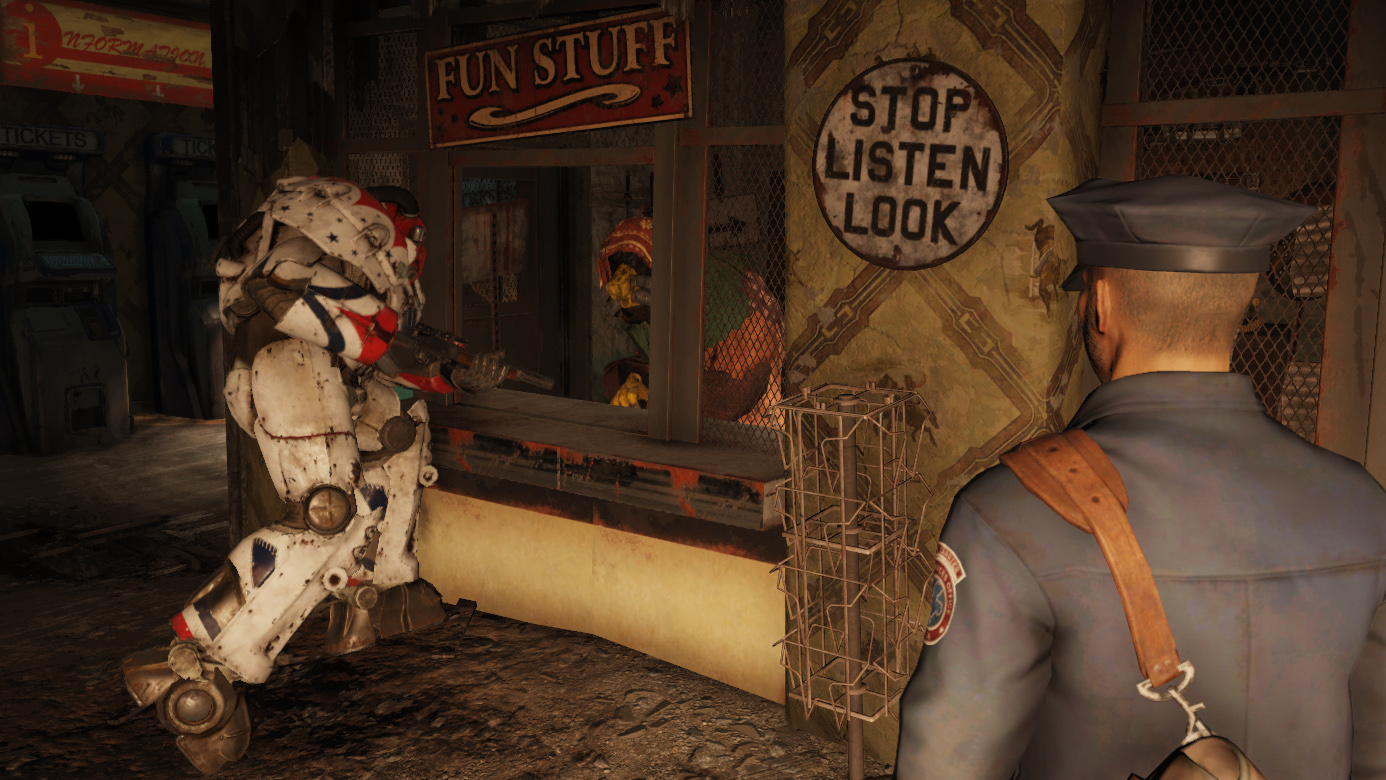
"...we understand there's been disappointment with the game, and there's also been problems."
Jeff Gardiner, Project Lead
Other requested changes from the community didn't require quite so much deliberation. Early on, players wanted a way to know if they already owned a particular recipe when shopping at a vendor, so Bethesda added a 'known' tag to vendor menus back in January. Simple enough. Player vending machines were another community request, though Gardiner says Bethesda had already been considering it themselves. With no traditional player hub in Fallout 76, and with player camps not marked on everyone's maps, there wasn't a great way for players to meet and congregate at each other's bases, something players desperately wanted and something vending machines now allow for nicely.
Keep up to date with the most important stories and the best deals, as picked by the PC Gamer team.
"The community really is looking for ways to interact with each other more," says Gardiner. "We have such a great positive community in this game, it's actually sort of astounding. People go into the game and part of their gameplay is to help other players to succeed and enjoy the game."
I ask Gardiner about player numbers, but he isn't able to give me anything specific, other than saying that the numbers are "very healthy" and that the playerbase is stable. They're also seeing players who had purchased the game last year returning to check out the new content added by Wild Appalachia. The regular update schedule didn't just add new features but lots of fixes and tweaks based on player feedback, which Bethesda watches closely along with their own internal list of desired improvements.
"We read the forums," Gardiner says, "we read the comments, we understand there's been disappointment with the game, and there's also been problems. So we're trying our best to react in smart and fast enough ways, both smart and quickly, to those concerns."
But forums aren't the only place Bethesda looks for community feedback. While Fallout 76 still doesn't officially support player-made mods, they definitely are aware of them and what they represent.
Player mods and the Creation Club
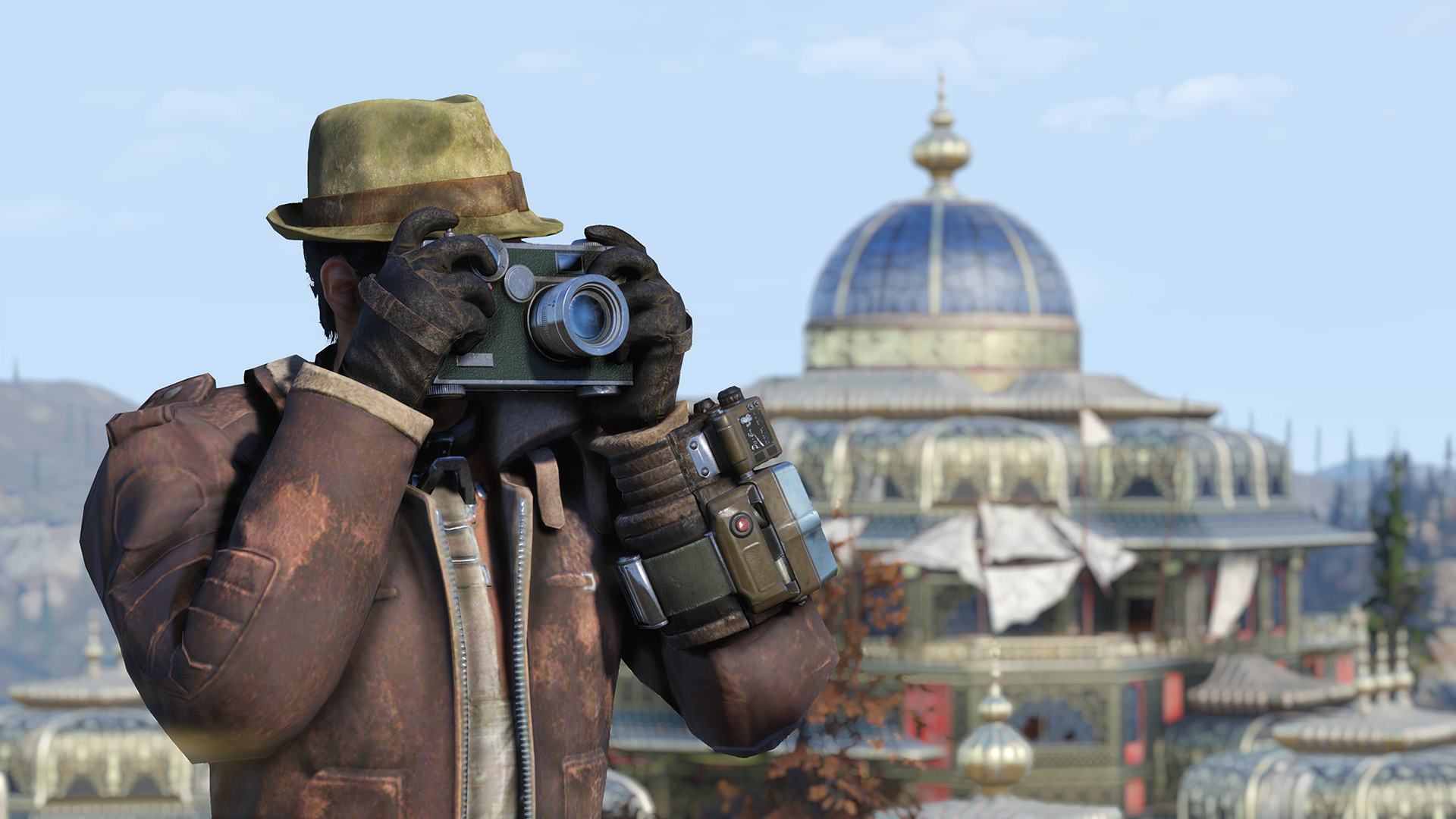
I'm a pretty casual Fallout 76 player at this point, and I tend to only play when there's been something new added to the game. Which, over the past few months with Wild Appalachia, has led me to play nearly every week. The last time I played, I jumped in to do a quest that first invites me to look for an in-game camera, then to follow a dead photographer's bucket list: a series of locations around the map to take pictures of.
After finding the camera and bucket list, I had to take a moment to kill some giant bloodbugs, after which I looked in my inventory to locate the list. Under notes, I expected to find it alphabetically near the top. 'Bucket List', right? But it wasn't there. And since you can't sort your list of notes by how recently you picked them up, I did what every Fallout 76 player has done a dozen times: I sighed deeply and scrolled through my entire goddamn collection of notes, which is quite extensive at this point. I finally found it somewhere in the middle because it's called 'My Bucket List' instead of just 'Bucket List.'
Being able to sort and categorize our sub-inventories in more useful ways than by weight and value is an improvement that players typically have to download a mod for in Bethesda RPGs. It's something I would call a 'quality of life' fix, and it's something Bethesda hasn't been great at doing themselves. These quality of life changes, historically, have mostly come from modders. But that may be changing.
We actually have our list of the top ten mods that are played.
Chris Mayer, Development Director
Gardiner tells me there is a plan to address "a lot of these smaller concerns" that are more about quality of life issues, or "holistic" changes, as he puts it—the sort of things that modders have been working on fixes for since the game's release. And despite not officially supporting mods, Bethesda does keep an eye on what mods players are using.
"We're actually also actively looking at some of the more popular mods on PC which deal with inventory management," Gardiner says. "I'm just saying. We're aware."
"We actually have our list of the top ten mods that are played," says Mayer, "and we want to be very cognizant of that, because when players are using mods to play the game, that's a clear area where we can improve."
Since we were on the topic of mods, I asked if the Creation Club might be introduced for Fallout 76 someday—Creation Club being a store where community modders and creators can sell items they've created for Fallout 4 and Skyrim. There's a brief pause after my question.
"Chris [Mayer] is looking for me to answer that," Gardiner says.
"I wish I could talk about that," Mayer says at the same time.
"We have all sorts of plans in the future for how we're going to continue to make this game a vibrant... we're very well aware our modding community is part of that," says Gardiner. "That's all I'll say. For now. But we're well aware of how important that is for both the modders and the community, and us. So, we would be ill-advised to ignore that."
Quick fix
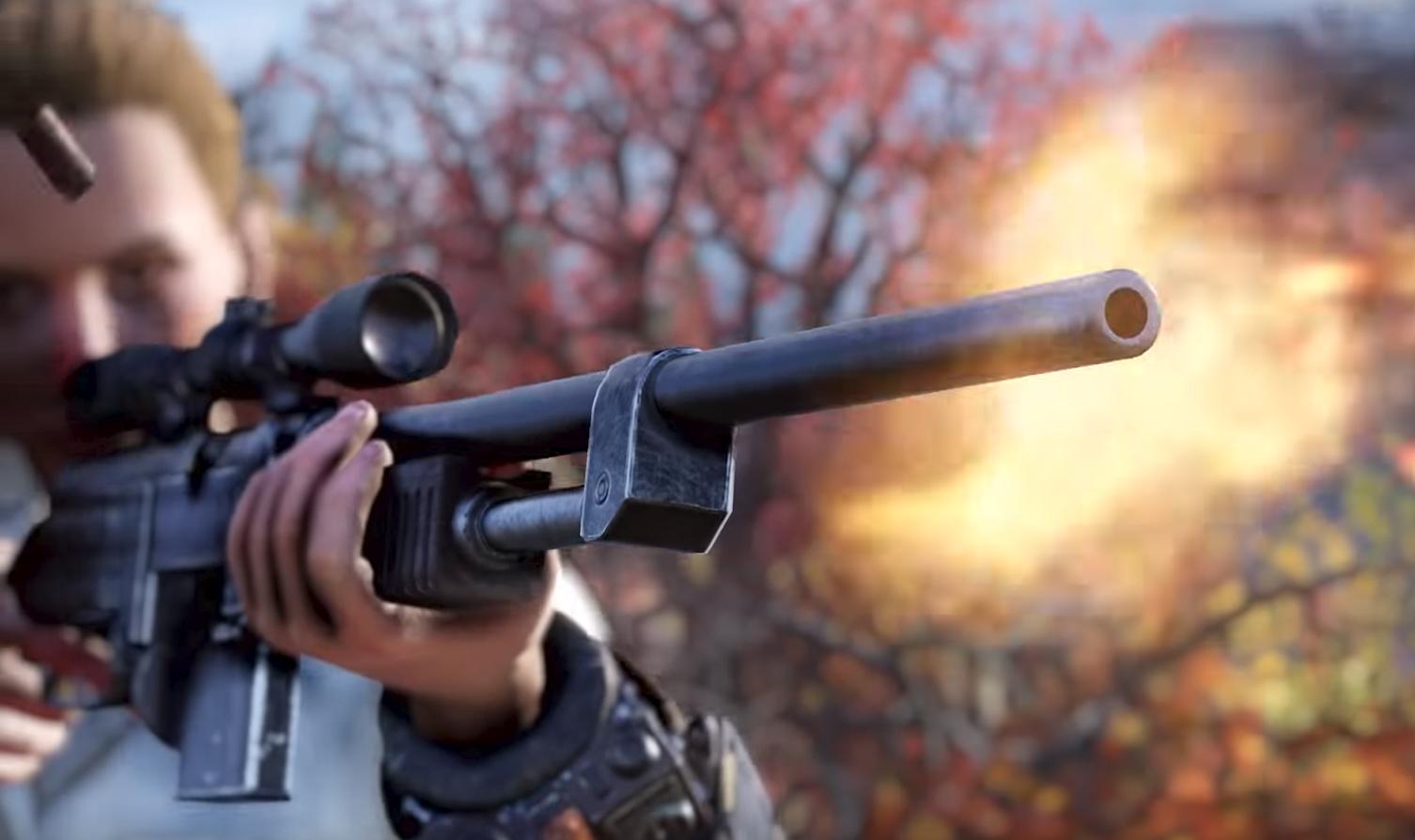
Controversies hit Fallout 76 from time to time—I'm sort of wondering if speculation about a Fallout 76 Creation Club might spawn another—and one of the more recent ones was the appearance of repair kits in the Atomic Shop, the store where players can spend Atoms, a currency either earned by completing challenges or bought with real-world money. Originally, the Atomic Shop was intended only for cosmetic items, but repair kits have an actual use in the game: they allow players to fix weapons and gear without having to scrounge around for all the individual components.
As a filthy casual I find them pretty useful. When I jump in to try out a new update, I don't want to first have to slog through a bunch of buildings hunting for screws and copper and rubber, getting into unrelated fights along the way and damaging more gear that will need to be repaired before I can do what I actually want to do. And since I don't play often, I don't have many Atoms anyway, so it's nice to have something relatively cheap to buy since I can't afford most of the outfits or skins for sale in the shop.
But a lot of Fallout 76 players were quite vocal about their unhappiness with the repair kits being sold, with some pondering a 'slippery slope' that might someday see other non-cosmetic items for sale in the Atomic Shop, and others outright declaring that Bethesda broke their promise to sell cosmetics only and that the kits represent a 'pay-to-win' system. Repair kits gave players who buy them an advantage over players who don't, they say.
..."it's simply just a strict convenience thing."
Jeff Gardiner, on repair kits
Gardiner doesn't see it that way. "We believed the repair kits were a convenience item for people who didn't want to grind for adhesive and other things," he said, "and it was just a way for them to basically shortcut game systems, definitely not pay-to-win.
"I will argue [with] anybody that [repair kits] makes you win at the game. First of all, you're not really competing with one another, except for in PvP mode. We have all the information, how often people repair, what they repair, and again, you can repair in the game, it's simply just a strict convenience thing. That's my take on repair kits."
Mayer agrees, but he also talks about how there are two well-defined lines of microtransactions, with one being purely cosmetic items and the other being items that can give you a noticeable competitive advantage. And he acknowledges there's something of a gray area between them. He doesn't see repair kits as pay-to-win, but at the same time he understands the controversy. "I can certainly see why other players would see it as being on the other side of the cosmetic line," he says.
Full steam ahead
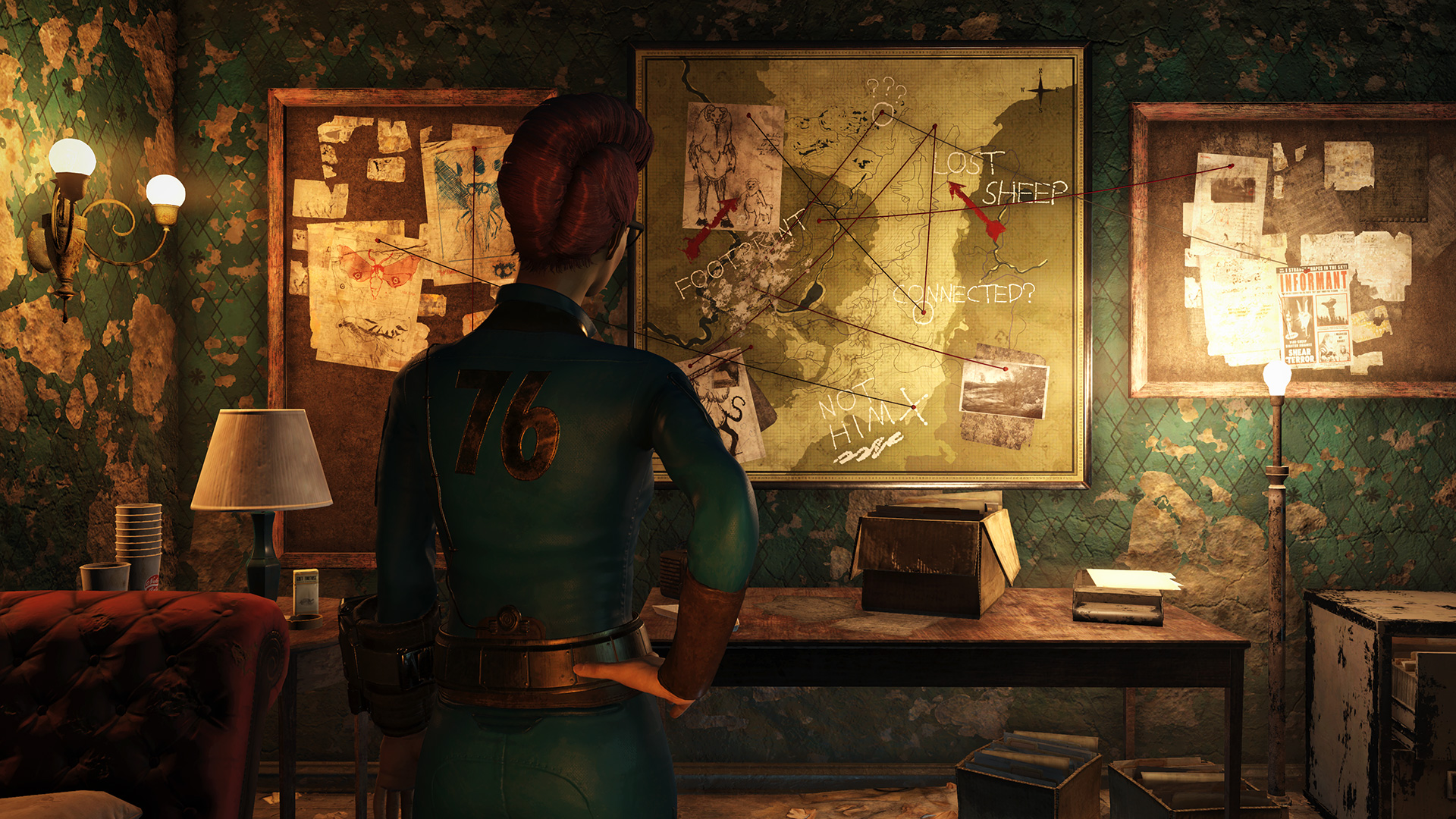
When Fallout 76 launched it was only available on Bethesda's own launcher—not the biggest controversy we've seen regarding PC exclusives, obviously, but Steam users weren't particularly happy about it. We now know Fallout 76 is eventually going to come to Steam after all, along with Doom Eternal and Wolfenstein: Youngblood.
"Valve and Steam have been a huge partner of ours for years, right?" says Gardiner. "So, the Valve Workshop and the ability for a Steam user to get access to these mods that are right in their store is amazing, and we want to make sure to keep supporting that. And like our other MMOs, like most MMOs, we decided to try our own platform to launch it, and now we want Steam users to access it too. So it was an easy decision, like I said, it was a corporate decision. I look at Steam for all my games, right?"
"I'm personally happy with it because I love Steam, and I've got a great big Steam library," Mayer says. "But yeah, it's a corporate thing."
Private servers for Fallout 76, another pre-launch promise, are still on Bethesda's horizon—Mayer tells me they're working on it but aren't ready to talk about dates or details. I also tried to ask about the next big event on the Fallout 76 roadmap, Nuclear Winter, which is ironically coming this summer. We don't know much about it yet other than it'll introduce raids for high-level players along with another new as-yet unrevealed game mode.
Unfortunately, I wasn't given any fresh details about Nuclear Winter, though Bethesda's PR person (who was listening in on the call) said they will have "a lot to talk about at E3" when it comes to Fallout 76. That's coming soon, though: Bethesda's E3 press conference is starting at 5:30 pm PT on Sunday, June 9. You can tune in right here.

Chris started playing PC games in the 1980s, started writing about them in the early 2000s, and (finally) started getting paid to write about them in the late 2000s. Following a few years as a regular freelancer, PC Gamer hired him in 2014, probably so he'd stop emailing them asking for more work. Chris has a love-hate relationship with survival games and an unhealthy fascination with the inner lives of NPCs. He's also a fan of offbeat simulation games, mods, and ignoring storylines in RPGs so he can make up his own.

